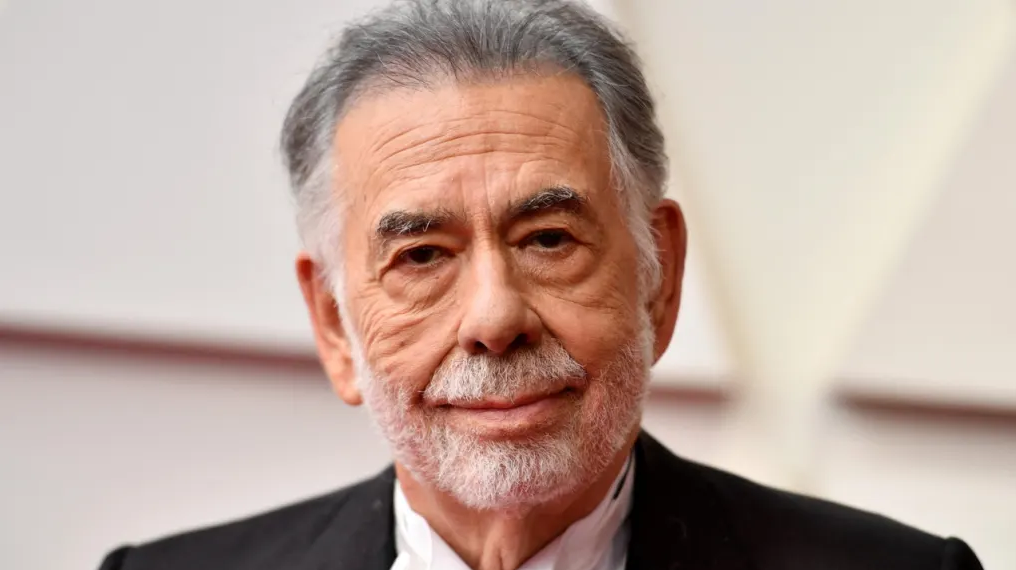Francis Ford Coppola, one of the most iconic directors in cinema history, is about to premiere his latest film, “Megalopolis,” at the Cannes Film Festival. Known for classics like “The Godfather” and “Apocalypse Now,” Coppola’s new film is already generating a lot of buzz, not just for its ambitious scope but also for the controversies surrounding its production. Let’s take a closer look at the making of “Megalopolis,” the challenges it faced, and what we can expect from this highly anticipated film.
The Making of “Megalopolis”
“Megalopolis” is set in a city similar to New York, recovering from a devastating disaster. The film follows an idealistic architect, played by Adam Driver, who dreams of rebuilding the city in a grand, new vision. Opposing him is the city’s corrupt mayor, portrayed by Giancarlo Esposito, who wants to maintain the status quo. The cast also includes notable names like Aubrey Plaza, Shia LaBeouf, Dustin Hoffman, Jon Voight, Laurence Fishburne, Talia Shire, and Jason Schwartzman. Coppola’s vision was so strong that he invested $120 million of his own money to make the film.
Production Challenges
The production of “Megalopolis” was not smooth sailing. Reports surfaced about Coppola’s behavior on set, with some crew members describing it as “old school,” particularly in his interactions with women. Allegations included Coppola pulling women onto his lap and attempting to kiss female extras during a nightclub scene, supposedly to get them in the right mood for filming.
Alleged Misconduct
The Guardian published a report detailing these allegations, which painted a troubling picture of Coppola’s behavior. Witnesses described scenes where Coppola’s actions made some feel uncomfortable, raising questions about professional boundaries and conduct in the workplace.
Defending Coppola
In response, Darren Demetre, the executive co-producer on “Megalopolis,” defended Coppola. He explained that Coppola’s gestures, such as kisses on the cheek, were meant to create a friendly atmosphere on set. Demetre emphasized that no formal complaints were made during the production, suggesting that the interactions were not intended to be inappropriate.
Financial and Creative Struggles
Funding such an ambitious project independently is a massive undertaking. Coppola’s decision to finance “Megalopolis” himself added immense pressure to ensure the film’s success both creatively and financially. Some crew members reported long periods of inactivity, with Coppola often retreating to his trailer, causing delays and uncertainty. These accounts indicate a production process marked by unpredictability and challenges.
Positive Testimonials
Not all feedback was negative. Mike Figgis, a longtime friend of Coppola, documented the making of “Megalopolis” and praised Coppola’s ability to lead such a massive project at the age of 84. Figgis described Coppola as deeply involved and dedicated, often seen making notes and discussing ideas with his team. This positive portrayal offers a counterbalance to the allegations, highlighting Coppola’s enduring passion for filmmaking.
The Role of Key Actors
Adam Driver plays the idealistic architect, bringing his characteristic intensity to the role. Giancarlo Esposito, known for his commanding screen presence, plays the corrupt mayor, adding depth to the narrative conflict. The film also features a diverse and talented cast, including Aubrey Plaza, Shia LaBeouf, Dustin Hoffman, Jon Voight, Laurence Fishburne, Talia Shire, and Jason Schwartzman, all contributing to the film’s potential for success.
Coppola’s Directing Style
Coppola’s directing style is unique and often spontaneous. His approach on “Megalopolis” involved making decisions on the fly and setting the tone for scenes in unconventional ways. While this led to some frustration among the crew, it also helped create the film’s distinct atmosphere. Coppola’s ability to balance his artistic vision with the practical demands of filmmaking is a hallmark of his career.
The Vision of “Megalopolis”
“Megalopolis” is more than just a disaster movie; it’s a story about urban rebirth and human resilience. The plot centers on the efforts to rebuild a city and the ideological battles that ensue. Coppola’s narrative explores themes of power, corruption, and hope, aiming to deliver a thought-provoking cinematic experience. The film’s setting and storyline reflect Coppola’s desire to create a modern epic that resonates with contemporary audiences.
Cannes Film Festival Premiere
The upcoming premiere at Cannes is a significant milestone for “Megalopolis.” The festival offers a platform for films to gain critical acclaim and secure distribution deals. For Coppola, presenting his self-financed project at such a prestigious event is a testament to his enduring influence and the high expectations surrounding the film. Success at Cannes could pave the way for a wide release and solidify “Megalopolis” as a major cinematic achievement.
Public and Critical Reception
Initial reactions from those involved in the production have been mixed, but there’s a lot of anticipation about how the film will be received by critics and audiences. If “Megalopolis” lives up to its potential, it could earn a place among Coppola’s most celebrated works. The film’s success could also influence future projects and the way independent films are funded and produced.
Comparisons to Coppola’s Past Work
Comparisons to Coppola’s previous films are inevitable. Like “The Godfather” and “Apocalypse Now,” “Megalopolis” is ambitious in scope and rich in thematic content. Coppola’s evolution as a filmmaker is evident in his willingness to take risks and push boundaries, both creatively and financially. His influence on modern cinema remains profound, and “Megalopolis” could further cement his legacy.
Conclusion
Francis Ford Coppola’s “Megalopolis” is shaping up to be a significant entry in his storied career. Despite the controversies and challenges, the film represents Coppola’s enduring commitment to his craft and his desire to tell meaningful stories. As we await its premiere at Cannes, “Megalopolis” promises to be a thought-provoking and visually stunning film that could leave a lasting impact on audiences and critics alike.







